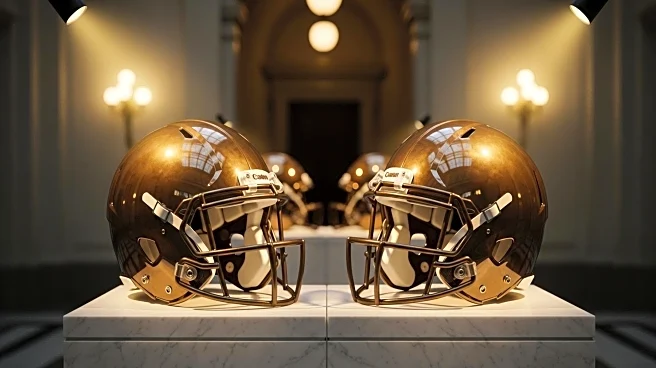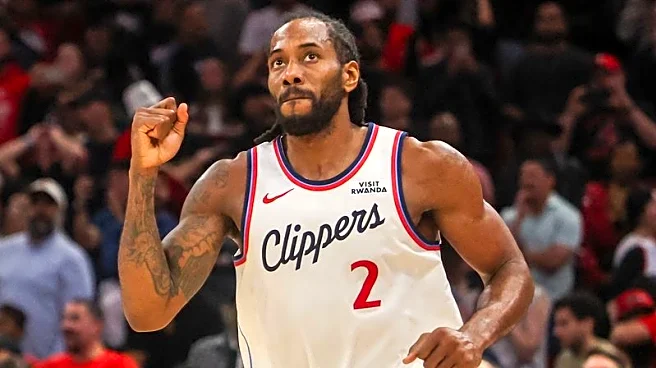What's Happening?
Robert Kraft, owner of the New England Patriots, has announced plans to honor former head coach Bill Belichick with a statue next to Tom Brady's. Belichick, who coached the Patriots for 24 seasons and won six Super Bowls, parted ways with the team after the 2023 season. Despite a less than amicable end to his tenure, Kraft acknowledges Belichick's significant contributions to the franchise. The announcement follows the unveiling of Tom Brady's statue earlier this year, highlighting the complex relationships between Kraft, Brady, and Belichick. Belichick has since joined the University of North Carolina as a coach, although his debut was marked by a significant loss to TCU.
Why It's Important?
The decision to commission a statue for Bill Belichick underscores his legacy and impact on the New England Patriots, despite recent challenges. This move reflects the importance of recognizing historical contributions to sports franchises, even when relationships have soured. For the Patriots, it is a way to honor a transformative era in their history, potentially influencing how other sports teams manage legacy and recognition. The statue could serve as a symbol of reconciliation and respect, impacting fans and the broader sports community by preserving the memory of a successful period in the team's history.
What's Next?
The next steps involve discussions between Kraft and Belichick regarding the statue's design and placement. This process may take time, as Belichick is currently focused on his coaching role at the University of North Carolina. The announcement may also prompt reactions from fans and sports analysts, who will watch closely how the Patriots continue to honor their past while navigating current challenges. Additionally, the statue could become a focal point for future Patriots events, drawing attention to the team's storied history.
Beyond the Headlines
The decision to honor Belichick with a statue raises questions about how sports franchises handle legacy and recognition, especially when relationships are strained. It highlights the ethical considerations in sports management, where personal dynamics can influence public honors. This development may encourage other teams to reflect on their own histories and the figures who have shaped them, potentially leading to broader discussions about legacy and recognition in sports.











